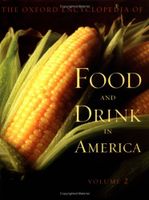Label
All
0
Clear all filters
🌷 Spring savings – save 25% on ckbk Premium Membership with code SPRING25
Veganism
Appears in
Published 2004
In 1944 in Leicester, England, Donald Watson (1910–2005) and his wife, Dorothy, coined the word “vegan,” which they formed from the first three and the last two letters of “vegetarian.” With this new term the Watsons wanted to encompass the meaning of “vegetarian” imparted by the Pythagoreans and Buddhists—one who, for reasons of compassion, abstains from consuming all foods and other products of animal origin. When asked in an interview what had impelled him to coin the term vegan, Watson said: “Veganism originated from the thought that any sentient creature has rights.” From this, it is clear that veganism—grounded as it is in compassion for other beings—is a corollary of the animal rights movement. Vegans do not consume honey, for instance, because it is the work product of the bee, and honey cannot be harvested without causing the death of some bees. Nor do vegans wear clothing from animal sources. Shoes made from leather, dresses made from silk, or jackets made from wool are verboten to vegans—because their manufacture may result in the discomfort or death of animals. Pharmaceuticals and medicines extracted from animals or that contain animal ingredients are also studiously avoided.
Become a Premium Member to access this page
Unlimited, ad-free access to hundreds of the world’s best cookbooks
Over 150,000 recipes with thousands more added every month
Recommended by leading chefs and food writers
Powerful search filters to match your tastes
Create collections and add reviews or private notes to any recipe
Swipe to browse each cookbook from cover-to-cover
Manage your subscription via the My Membership page
Best value
Part of
Advertisement
Related Recipes
-
-
-
-
Related Reference
-
-
-
-
Advertisement
The licensor does not allow printing of this title



